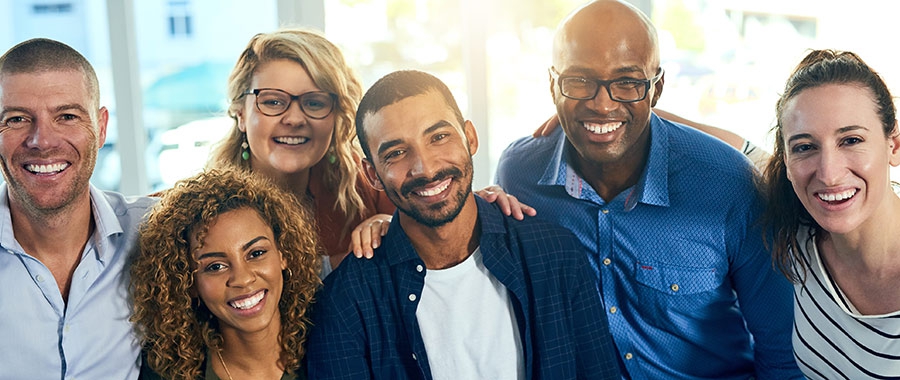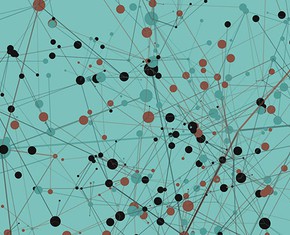The views expressed in our content reflect individual perspectives and do not represent the authoritative views of the Baha'i Faith.
Physically, we all start out as two tiny cells in the womb. Those cells gradually grow in identifiable stages, and we slowly become adults. Does our moral and spiritual reality develop the same way?
Many scientists and behavioral theorists have asked that question. A few have studied it carefully and come up with moral development models that comprehensively describe the successive stages we go through to grow and mature morally. Probably the best-known moral development model came from the American psychologist Lawrence Kohlberg in 1958, which was originally inspired by Jean Piaget’s pioneering effort to apply a structural approach to moral development in childhood.
Kohlberg became interested, early in his career, in a fascinating question: how do people make their moral judgments—in other words, how do we decide what’s right and what’s wrong, and does that calculation change as we grow and mature?
This question, of course, transcends mere psychology and veers into the realm of the human spirit, just as all deep moral questions do. In fact, as he researched and developed his moral typology, Kohlberg could have been reading the Baha’i teachings, which clearly say that our development in moral attributes occurs in stages:
Baha’u’llah has announced that no matter how far the world of humanity may advance in material civilization, it is nevertheless in need of spiritual virtues and the bounties of God. The spirit of man is not illumined and quickened through material sources. It is not resuscitated by investigating phenomena of the world of matter. The spirit of man is in need of the protection of the Holy Spirit. Just as he advances by progressive stages from the mere physical world of being into the intellectual realm, so must he develop upward in moral attributes and spiritual graces. – Abdu’l-Baha, The Promulgation of Universal Peace, p. 288.
That Baha’i quotation, from a speech Abdu’l-Baha gave to the Metaphysical Club in Boston, Massachusetts in August of 1912, preceded Kohlberg’s theory by more than four decades—and anticipated the enormous modern psychological interest in exploring the stages of human moral development.
Kohlberg’s sequence of the stages of moral development traces our moral maturation through three specific levels, each containing two stages, for a total of six steps in his moral development ladder. The process of moral maturation, Kohlberg said, doesn’t come from our genetic inheritance or our academic learning—instead it comes from each person’s thoughtful reflection and the consequent evolution of their inner moral compass:
The individual makes a clear effort to define moral values and principles that have validity and application apart from the authority of the groups of persons holding them and apart from the individual’s own identification with the group. – Lawrence Kohlberg
Every person inherently knows how that process works, because we all go through life making moral choices, and then seeing the outcomes and consequences of those choices. If we’re sufficiently conscious and conscientious, like most normal people, we grow and mature in our moral choices as we progress through the sequence of moral development stages, learning about concepts like justice, fairness, caring and respect for the rights of others.
In an interesting way, Kohlberg’s six steps of moral development correspond to our increasing interaction with wider and more inclusive social circles as we age. We first interact with our families; then with our peers; then with a broader and more diverse set of communities, from local to national to global. As we encounter and begin to understand the needs of those widening social circles, our moral cognition and intelligence grows, too, and if we continue to mature we gradually adapt our morality to encompass each wider circle.
Take a look at these six stages of Kohlberg’s moral development sequence and ask yourself: where am I on this continuum?
- Pre-conventional Morality
Level one is pre-conventional morality, which describes a person primarily motivated by obedience to authority. This level of moral development, commonly associated with young children, involves little thought about internal morality:- Stage 1: Morality is motivated solely by punishment. Anything punishable is deemed wrong. All moral authority is external.
- Stage 2: Focuses on individualism and begins to recognize different perspectives, but only with the basic goal of avoiding punishment.
- Conventional Morality
In the second level, which Kohlberg called “conventional morality,” people follow the social norms and customs prescribed to them by their culture, their religion or their upbringing:- Stage 3: Emphasizes the maintenance of healthy, happy interpersonal relationships and pleasing others.
- Stage 4: Goes beyond pleasing individuals to maintaining social order by following social norms, customs, and laws.
- Post-Conventional Morality
In the post-conventional phase of moral development, spiritually- and morally-developed individuals look beyond convention to determine higher moral norms and spiritual social interactions:- Stage 5: Emphasis on the greater social contract and the maintenance of individual rights.
- Stage 6: Search for universal principles. People in this stage of moral development, Kohlberg wrote, believe “in the sacredness of human life as representing a universal human value of respect for the individual.”
The majority of adults, psychologists have determined, generally operate at the second level of conventional morality, never questioning social norms, customs and laws, even when they lead to immoral consequences. Those who pass beyond the conventional stages of moral development, and mature into the post-conventional level, usually find their way to that level using the Baha’i principle of the independent investigation of truth:
God has created in man the power of reason, whereby man is enabled to investigate reality. God has not intended man to imitate blindly his fathers and ancestors. He has endowed him with mind, or the faculty of reasoning, by the exercise of which he is to investigate and discover the truth, and that which he finds real and true he must accept. He must not be an imitator or blind follower of any soul. He must not rely implicitly upon the opinion of any man without investigation; nay, each soul must seek intelligently and independently, arriving at a real conclusion and bound only by that reality. – Abdu’l-Baha, The Promulgation of Universal Peace, p. 291.
In the next essay in this series, we’ll examine the process anyone can use to move past the level of conventional morality and ascend to the post-conventional.
















Comments
Sign in or create an account
Continue with Googleor